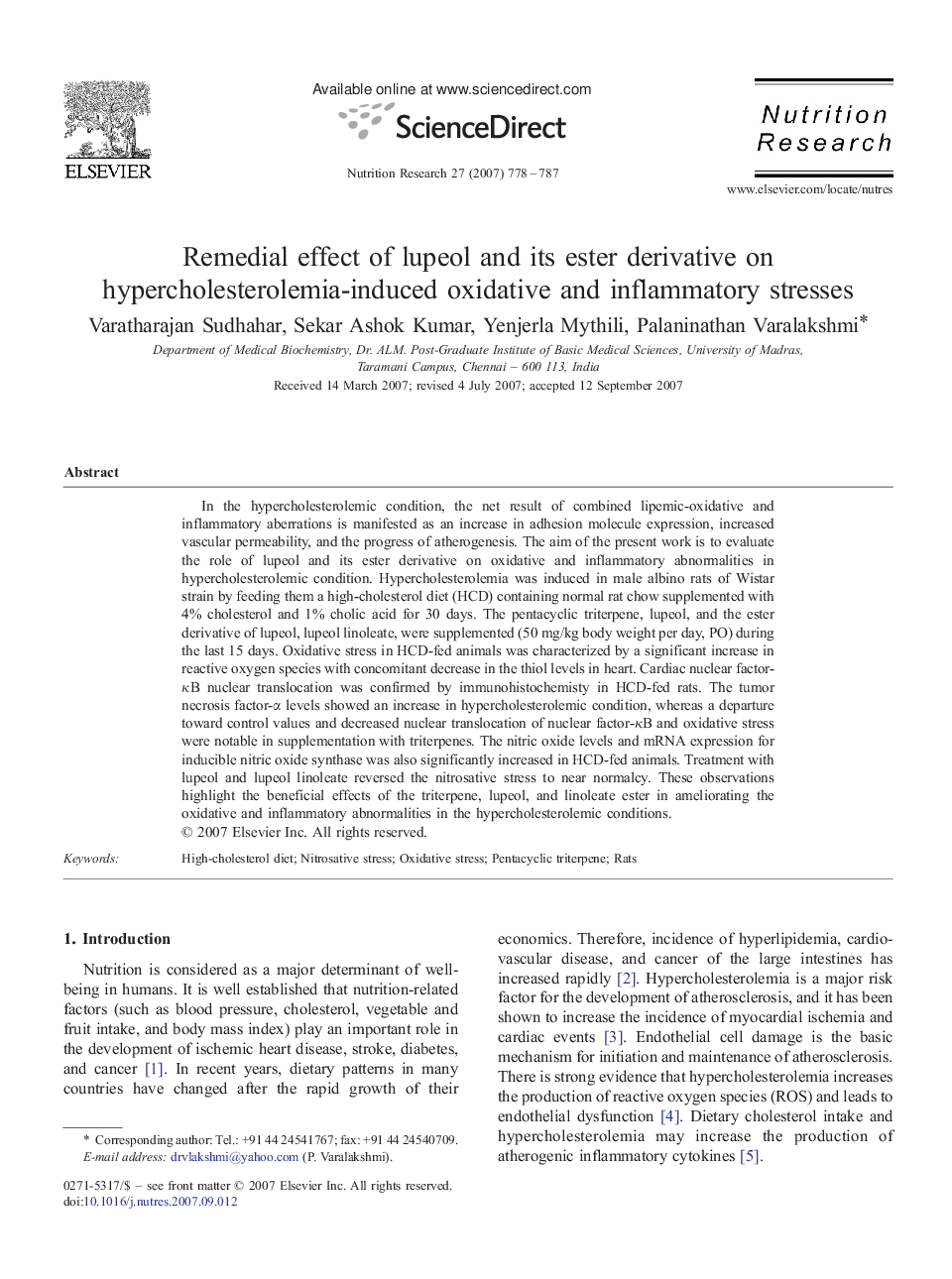| Article ID | Journal | Published Year | Pages | File Type |
|---|---|---|---|---|
| 2809749 | Nutrition Research | 2007 | 10 Pages |
Abstract
In the hypercholesterolemic condition, the net result of combined lipemic-oxidative and inflammatory aberrations is manifested as an increase in adhesion molecule expression, increased vascular permeability, and the progress of atherogenesis. The aim of the present work is to evaluate the role of lupeol and its ester derivative on oxidative and inflammatory abnormalities in hypercholesterolemic condition. Hypercholesterolemia was induced in male albino rats of Wistar strain by feeding them a high-cholesterol diet (HCD) containing normal rat chow supplemented with 4% cholesterol and 1% cholic acid for 30 days. The pentacyclic triterpene, lupeol, and the ester derivative of lupeol, lupeol linoleate, were supplemented (50 mg/kg body weight per day, PO) during the last 15 days. Oxidative stress in HCD-fed animals was characterized by a significant increase in reactive oxygen species with concomitant decrease in the thiol levels in heart. Cardiac nuclear factor-κB nuclear translocation was confirmed by immunohistochemisty in HCD-fed rats. The tumor necrosis factor-α levels showed an increase in hypercholesterolemic condition, whereas a departure toward control values and decreased nuclear translocation of nuclear factor-κB and oxidative stress were notable in supplementation with triterpenes. The nitric oxide levels and mRNA expression for inducible nitric oxide synthase was also significantly increased in HCD-fed animals. Treatment with lupeol and lupeol linoleate reversed the nitrosative stress to near normalcy. These observations highlight the beneficial effects of the triterpene, lupeol, and linoleate ester in ameliorating the oxidative and inflammatory abnormalities in the hypercholesterolemic conditions.
Related Topics
Life Sciences
Biochemistry, Genetics and Molecular Biology
Endocrinology
Authors
Varatharajan Sudhahar, Sekar Ashok Kumar, Yenjerla Mythili, Palaninathan Varalakshmi,
